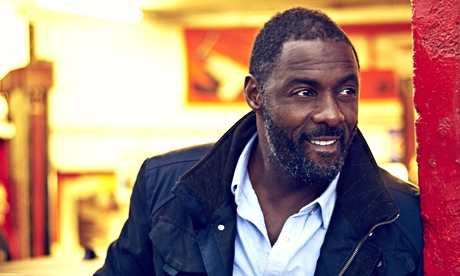
Reposted from The Guardian, written by Hugh Muir
Delicious rebellion on the Today programme as Simon Albury, the former chief executive of the Royal Television Society, addressed the trail of black British actors heading to the US for the career breaks they can't get here. How to explain the problem, asked Justin Webb. Easy, said Albury: the problem is "walking through your newsroom in the middle of London, when London is 40% black and minority ethnic and seeing one Asian, who is there to bring the guests in. Fourteen years ago, broadcasters said they were going to improve diversity and representation. We have had 14 years and very little progress."
He's right; too slow. And yes, that includes the Guardian.
Here's the puzzle: how can America be a superior bet for the likes of Idris Elba, Adrian Lester, David Harewood, Marianne Jean-Baptiste, given its history of racial strife and the astonishing inequalities that still exist? We think of the UK as more racially tranquil. So why is the US a better springboard?
Part of the answer, says writer Carol Russell, of the Fresh Voice Initiative, is industry specific. "The US increased its focus on diversity in the late 60s. This meant that talent both behind the camera and in front of the camera were able to learn their craft, which in turn led to shows such as The Cosby Show being made for primetime audiences, which in turn proved to be training grounds for the next generation of talent."
Some of it reflects perceptions of minority progress in both countries. Casting directors largely reflect society as they see it.
In the US, where there is massive inequality but also a substantial black middle class, they can envisage minorities in all sorts of situations and cast accordingly. Here that is more difficult to achieve.
Then there are corporate considerations. A 2011 report predicted black American buying power will reach $1.1trn by next year. That buys a deal of corporate attention. In Britain black and minority ethnic spending power is estimated at £300bn, but that has yet to trigger corporate reappraisal. Communities perceived as economically marginal will also be culturally marginal, because the cultural gatekeepers largely react to the landscape shaped by commerce. Sad our actors go west, but unsurprising.
For regular news, updates and opportunities, follow us on Twitter at @Scene_TV and 'Like' the Facebook page: www.facebook.com/SceneTV

